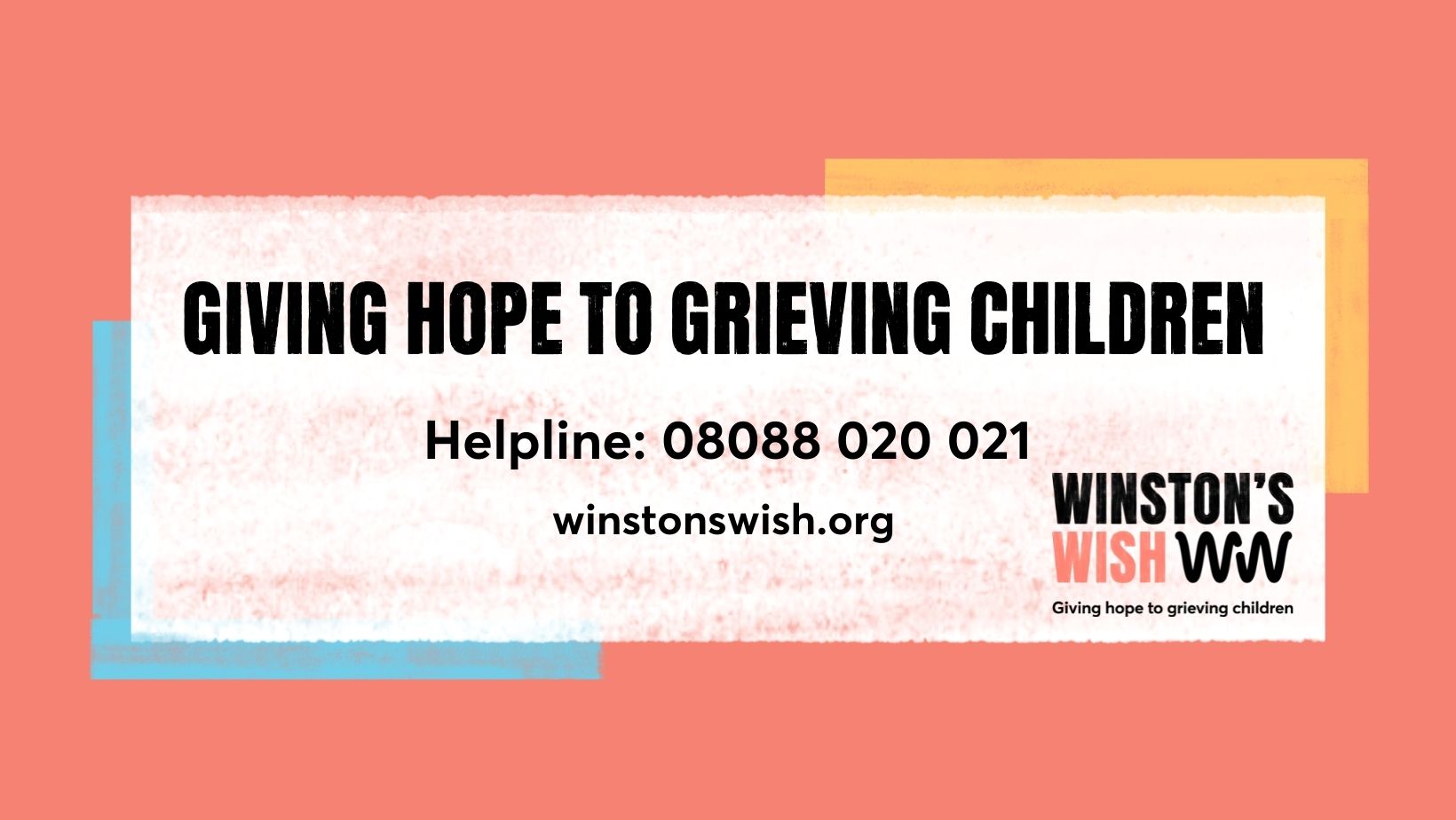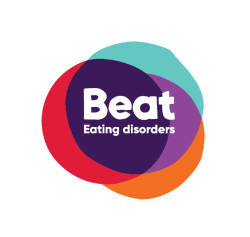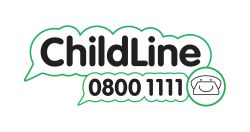- Home
- Student Support
- Safeguarding
- Safeguarding Themes
Safeguarding Themes
Here you can see information and guidance on a variety of safeguarding themes. If you see anything here that you wish to discuss further or you are concerned about someone, please contact the Safeguarding Team.
Bereavement
The death of a close friend or relative is a tragic event that can be one of the most distressing events that can happen to a young person. If you are reading this because you have experienced the death of a close friend or relative we would like to offer you and your family our sincere condolences at this most difficult time.
Please contact the relevant SPDL if a student has suffered bereavement. Bereavement can impact young people in different ways, and at different times, and it is important for staff working closely with people to be aware in order to support them.
Winston Wish has a Helpline where anyone supporting a bereaved child can gain advice, information and resources. The Helpline is available Monday to Friday 9-5 Freephone number: 08088 020 021

In regards to support, they have an ongoing telephone support for parents and carers supporting their children, which can offer up to 6 sessions over a period of up to 6 months called the Family Bereavement Support Service.
They have a chat support for young people through their online chat facility. The online chat can be accessed on a Tuesday or Friday on the below link.
Winston Wish Web Chat
To ask a question, follow the below link.
Child Sexual Exploitation (CSE)
Child sexual exploitation is a form of child sexual abuse.
It occurs where an individual or group takes advantage of an imbalance of power to coerce, manipulate or deceive a child or young person under the age of 18 into sexual activity (a) in exchange for something the victim needs or wants, and/or (b) for the financial advantage or increased status of the perpetrator or facilitator.
The young person may have been sexually exploited even if the sexual activity appears consensual.
Child sexual exploitation does not always involve physical contact; it can also occur through the use of technology.
More information on child sexual exploitation can be found here NWG Network or on the NSPCC website at Child Sexual Exploitation & How to Keep Your Child Safe | NSPCC.


Counter Terrorism, Prevent and Channel
The purpose of Prevent is to safeguard and support vulnerable people to stop them from becoming terrorists or supporting terrorism. In 2018, as part of the updated CONTEST Strategy Prevent work also extends to supporting the rehabilitation and disengagement of those already involved in terrorism.
Prevent works in a similar way to programmes designed to safeguard people from gangs, drug abuse, and physical and sexual abuse. Success means an enhanced response to tackle the causes of radicalisation, in communities and online; continued effective support to those who are vulnerable to radicalisation; and disengagement from terrorist activities by those already engaged in or supporters of terrorism.
Prevent has the following objectives:
- Tackle the causes of radicalisation and respond to the ideological challenge of terrorism
- Safeguard and support those most at risk of radicalisation through early intervention, identifying them and offering support
- Enable those who have already engaged in terrorism to disengage and rehabilitate
If you are worried about any students in relation to extremism or radicalisation, please contact the Safeguarding Team.
CCE - Child Criminal Exploitation and Gangs
Criminal Exploitation
Criminal exploitation is child abuse where children and young people are manipulated and coerced into committing crimes.
The word ‘gang’ means different things in different contexts, the government in their paper ‘Safeguarding children and young people who may be affected by gang activity’ distinguishes between peer groups, street gangs and organised criminal gangs.1
- Peer group
A relatively small and transient social grouping which may or may not describe themselves as a gang depending on the context. - Street gang
“Groups of young people who see themselves (and are seen by others) as a discernible group for whom crime and violence is integral to the group's identity.” - Organised criminal gangs
“A group of individuals for whom involvement in crime is for personal gain (financial or otherwise). For most crime is their 'occupation.”
It's not illegal for a young person to be in a gang – there are different types of ‘gang’ and not every ‘gang’ is criminal or dangerous. However, gang membership can be linked to illegal activity, particularly organised criminal gangs involved in trafficking, drug dealing and violent crime.
It’s important to be aware of the risks of criminal exploitation or being involved with a criminal gang. They can use different tactics to recruit and exploit children and young people, including bribing them with rewards, befriending them, and threatening them, or coercing them.
Dangers of criminal exploitation include:
-
- being subject to threats, blackmail and violence
- being exploited and forced to commit crimes
- being arrested, including for crimes committed by the gang that they have not directly committed under the law of joint enterprise
- not being able to leave or cut off ties with the gang
- having their safety or the safety of friends and family threatened
- risk of physical harm, rape and sexual abuse
- risk of emotional abuse
- risk of severe injury or being killed
- abusing drugs, alcohol and other substances
- long-term impact on education and employment options.
Government Advice on Gangs for Parents and Carers
County Lines
County Lines it is a term used to describe gangs and organised criminal networks involved in exporting illegal drugs from urban areas into rural areas. The leaders of these gangs will try to exploit children and vulnerable adults, often without them realising it. They often use other people to move and store drugs and money. They can use some very harsh measure to make young people or vulnerable adults help them.
There may be signs of a change in a young person’s behaviour such as:
- Returning home late, staying out all night, or going missing
- Being found in areas away from home
- Increasing drug use, or being found to have large amounts of drugs on them
- Being secretive about who they are talking to and where they are going
- Unexplained absences
- Unexplained money, phone(s), clothes, or jewellery
- Increasingly disruptive or aggressive behaviour
- Using sexual, drug-related, or violent language that you wouldn’t expect them to know
- Coming home with injuries or looking particularly dishevelled
- Having hotel cards or keys to unknown places
If you are concerned that someone may be subject to Child Criminal Exploitation, please contact a member of the Safeguarding Team.
Further Guidance

Eating Disorders
Around 1.25 million people in the UK suffer from these illnesses, many in secret. They are of all ages, genders and backgrounds – eating disorders do not discriminate. Eating disorders include bulimia, binge eating disorder, avoidant/restrictive food intake disorder (ARFID), other specified feeding or eating disorder (OSFED), and anorexia, which tragically has the highest mortality rate of any mental illness, though all eating disorders can be deadly. While this is the worst-case scenario, there are many ways in which eating disorders severely affect the quality of life of both those suffering and those who care about them. They steal childhoods, devastate relationships and pull families apart. But, with the right treatment and support, recovery is possible.
You can get further information and support from the UK charity, Beat Eating Disorders The UK's Eating Disorder Charity.

BEAT Eating Disorders If you, or someone you know is affected by eating disorders, please contact the Safeguarding team at RSFC.
Forced Marriage
BEING FORCED TO MARRY
Nobody has the right to force you to do something you don't want to do. Some families force their children to marry because they:
- think it’s an important part of religion or culture
- are worried about the family’s reputation and honour (in some cultures also known as 'izzat')
- want all of the family’s money to stay together
- want to marry their children off in exchange for money
- don’t approve of their child being gay, lesbian, bisexual or transgender
- don’t want their children to have relationships or sex
- feel pressured by the community or other family members to follow traditions
- want to keep family values and honour.
But none of these reasons are okay. And nobody has the right to force you into marriage.
More information and support on Forced Marriage can be found on the ChildLine website.

If you are worried about yourself or somebody else being forced into marriage, contact the Safeguarding Team.
Harmful Sexual Behaviour (HSB)
What is harmful sexual behaviour?
Harmful sexual behaviour (HSB) is developmentally inappropriate sexual behaviour which is displayed by children and young people and which may be harmful or abusive (derived from Hackett, 2014). It may also be referred to as sexually harmful behaviour or sexualised behaviour.
HSB encompasses a range of behaviour, which can be displayed towards younger children, peers, older children or adults. It is harmful to the children and young people who display it, as well as the people it is directed towards.
Technology assisted HSB
Technology assisted HSB (TA-HSB) is sexualised behaviour which children or young people engage in using the internet or technology such as mobile phones. This might include:
- viewing pornography (including extreme pornography or viewing indecent images of children)
- sexting
(Hollis and Belton, 2017)
NSPCC Learning
Child sexual abuse is an important public health issue, and parents, carers and families have a vital role to play in keeping children safe.
Children and young people are most likely to be at risk of sexual abuse within their family and community. But not all sexual abuse is carried out by adults.
It is hard for us to think about children and young people sexually abusing other children and young people, and it isn’t always easy to tell the difference between abusive and normal sexual behaviours in children.
Children, particularly in younger age groups, might engage in such behaviour without knowing that it is wrong or abusive. That’s why it can be more helpful to talk about harmful sexual behaviour rather than abuse.
Source: https://www.stopitnow.org.uk/
Further information
Understanding Sexual Behaviour in Children | NSPCC
Review of Sexual Abuse in Schools and Colleges - GOV.UK
Brook – Healthy Lives for Young People
Talking to Your Child About Online Sexual Harassment - Children's Commissioner
RSFC is committed to supporting all those impacted by peer-on-peer sexual abuse and harmful sexual behaviours.
If you are concerned about a child displaying harmful sexual behaviours, please contact the Safeguarding Team.
Hate Crime
A hate crime is any crime that is motivated by hostility on the grounds of race, sexual orientation, disability, religion, or gender identity. Similarly, a hate incident is any incident
perceived by the victim, or any other person, to be motivated by hostility or prejudice based on the person’s:
- race
- sexual orientation
- disability
- religion
- gender identity
Hate crimes and incidents can take place anywhere - at home, in public places, at work or in school. Crimes can include threats, verbal abuse, graffiti, arson, robbery, violence, or damage.
The National Hate Crime Plan published in July 2016, focuses on 5 key areas:
- Preventing hate crime by challenging beliefs and attitudes through education for young people
- Responding to hate crime with the aim of reducing incidents through security funding and other measures
- Increasing reporting of hate crime
- Improving support for victims
- Building understanding of hate crimes through data collection and analysis
How to report a hate crime/incident
Emergency or ongoing
If there is a threat to life or a hate incident ongoing call: 999
Trains and train stations
Report all hate that happens on trains, or at the station, via text to the British Transport Police on: 61016
Internet and Relationships
Knife Crime
When you carry a knife, you are risking everything. Prison, being a victim of crime and even ending up in hospital are all real risks. Beyond this, knife crime has devastating personal effects on you, your friends, and your family.
While some young people pick up a knife to feel safer, they don’t realise that carrying makes them more likely to get into serious danger. A knife can escalate things way out of your control, and make a bad situation much worse.
It might not always seem like it, but putting down the knife will make you safer and help you to reach your full potential. Don’t let prison or serious injury stop you from achieving your goals.
Legal Consequences
- Carrying a knife can mean four years in prison, even if you don’t use it.
- You can get a criminal record just for carrying a knife.
- Carrying an offensive weapon, like a knife, is a serious offense and carrying it for self-protection is not a defence.
Emotional Consequences
-
Carrying a knife doesn’t just have an impact on you; it can affect your family and friends too.
-
No parent or grandparent would ever want to see their child get injured, go to prison or be killed.
-
It will also impact on your brothers or sisters, if carrying a knife leads you to having serious injuries or losing your life.
Personal Consequences
-
Carry a weapon and it could be used against you
-
Employers may be less likely to employ someone with a criminal record
-
Countries such as the USA and Canada may not allow someone with a criminal record in, even just on holiday.
Other Facts
-
99% of young people aged 10-29 don’t carry a knife
-
People who carry a weapon are more likely to be hospitalised with an injury caused by violence
-
There is no ‘safe place’ to stab someone – any stab can be fatal – and the consequences will be just as severe
If you are concerned that someone may be involved in or affected by knife crime, please contact a member of the Safeguarding Team.
Mental Health
We believe that all young people deserve the best start in life, and know that our students’ mental health and wellbeing are vital to their ability to thrive and be the best; evidence shows that emotional and mental wellbeing are linked with attainment. Research shows that half of all mental health conditions are established before the age of fourteen, and our academic community plays a key role in supporting early identification and intervention.
Online Safety
Our students are regularly updated with comprehensive online safety guidance throughout their experience at the RSFC. We deliver key messages via our online safety lessons as part of the ICT and Computing curriculum. Assemblies, Tutor periods, and enrichment clubs are also used as opportunities to update students on online safety.
RSFC has a secure network and ICT facilities that filter our internet and email systems to ensure students are safe.
How do I stay safe online?
If you are setting up a profile on a social networking site such as Facebook, joining a forum, or just chatting on an instant messenger, there are lots of things you can do to stay safe. If you do have a problem, or if someone contacts you that you don’t know, it’s important to know what to do.
- Don’t add anyone you don’t know to your friend list, even if they say they know you. If you don’t know them, don’t add them
- If someone contacts you or one of your friends with weird or abusive messages, don’t reply to them but do save the messages. Tell someone you trust such as a parent/carer, or SPDL as soon as possible and show them what you have been sent
- If you are writing a blog, be careful what you write in it. Don’t give away too many details about yourself
- Don’t arrange to meet someone that you have met online. They may not be who they say they are
- The Internet is a real community of people who are connected by computers, so treat people that you don’t know on the Internet as strangers that you might meet in a street
- Do not give out any personal information related to your family, friends or yourself like full names, addresses, telephone or mobile numbers or those of your parents or carers. Other information like the name and location of your College or details of College activities can also identify you to others, whether you are in a chat room, message board or newsgroup. Sometimes there are people who watch out for such information, and they can put together a picture of your activities over a period of time that could be several weeks. So be careful with what you say, and never give out your personal details
- Be aware when choosing your chat username or email username not to pick a provocative name. As a result you would be more likely to be sent provocative emails or harassed online
- Never respond to provocative, rude, obscene or threatening messages
Do not open an email from someone you don’t know as you may download viruses, or it may contain contents that could upset you.

